Description
ABSTRACT
Affidavit Evidence and The Advocate-Witness Rule: A Critique of the Recent Decisions of the Supreme Court
Chimezie Onuzulike*
Whether because of ethical rules or just common sense, it is at least accepted that combining the role of advocate and witness for a client is certainly ill-advised. However, while prosecuting their client’s case, lawyers may know of specific facts because of their involvement in the events giving rise to those facts. The facts may relate to investigations undertaken as part of the representation or may even relate to matters of practice and procedure, which means that the lawyers are more competent to speak to those facts. Therefore, in reality, a lawyer may find himself in a situation where he may have to act as a witness for his client. The situation is complicated where the lawyer must give oral evidence and be cross-examined, but much less so when all he has to do is depose facts within his personal knowledge in an affidavit on behalf of the client. The Nigerian courts have held that a lawyer cannot depose to affidavits on behalf of his client as that would amount to a breach of ethical rules. However, such an affidavit deposed by a lawyer is incompetent and would be discountenanced. This paper argues that the position of the Nigerian courts on lawyers deposing to affidavits on behalf of their clients is erroneous and problematic and misses the point.
Keywords: Advocate-Witness Rule, Supreme Court, Lawyers, Witness, Affidavit, Affidavit Evidence.
INTRODUCTION
The role of a lawyer does not particularly align with that of a witness. Whilst the role of a lawyer is to advance or argue the cause of another, the role of a witness is to testify to facts. Generally, lawyers are barred from acting as witnesses in matters they handle for their clients. This is known as the advocate-witness rule. This rule is codified in Rule 201 of the Rules of Professional Conduct for Legal Practitioners, 2007 (the “RPC“).2 The Rule provides that “subject to sub-rule (2) of this rule, a lawyer shall not accept to act in any contemplated or pending litigation if he knows or ought reasonably to know that he or a lawyer in his firm may be called or ought to be called as a witness”.
*LLB, BL, MCIArb (UK). Senior Associate at G. Elias, Lagos Nigeria.
- This section contains similar provisions with Rule 3.7 of the ABA Model Rules of Professional Conduct.
- The General Council of the Bar on May 15, 2023 made new Rules of Professional Conduct for Legal Practitioners. The 2023 RPC which is set to take effect from January 1, 2024 retains essentially all rules as they currently are in the 2007 RPC. However, the 2023 RPC introduces a Chapter 2 which contains Anti-Money Laundering and Terrorism Financing guidelines and rules to ensure that lawyers are not unwittingly involved in money laundering and terrorism financing.

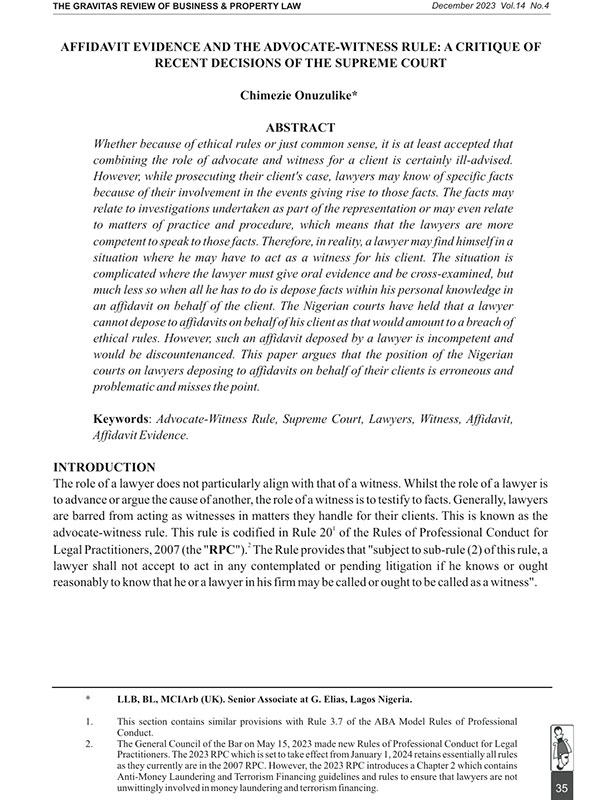
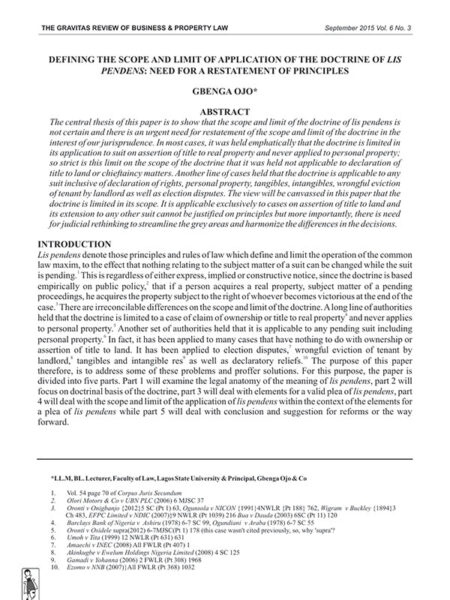
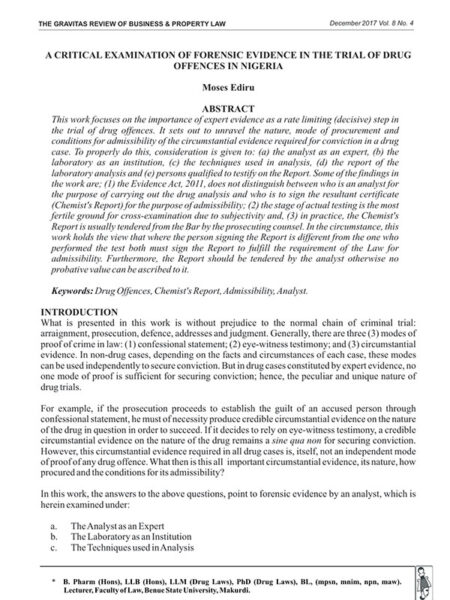
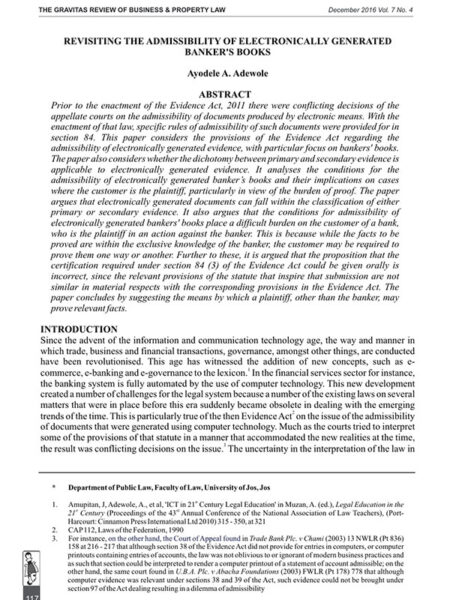
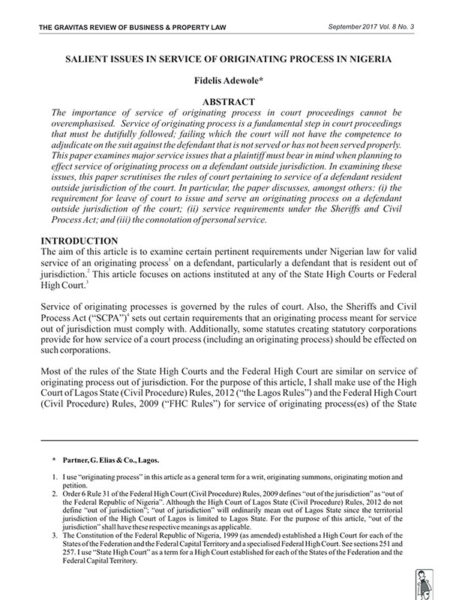


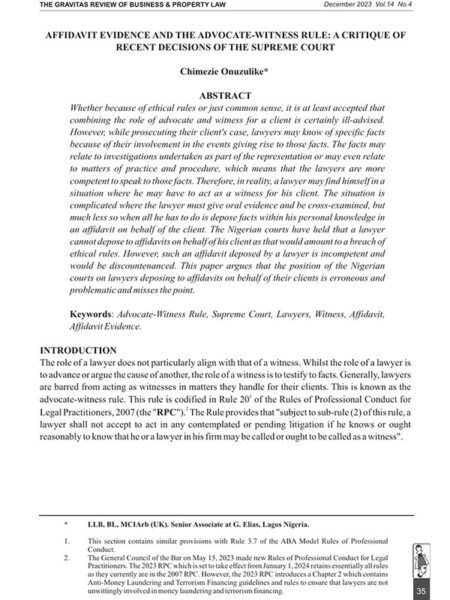
Reviews
There are no reviews yet.